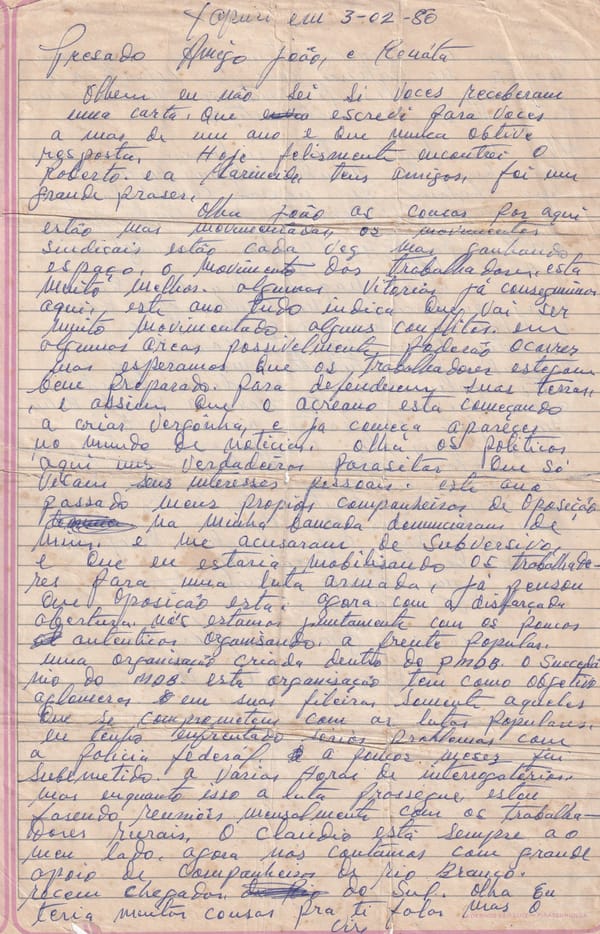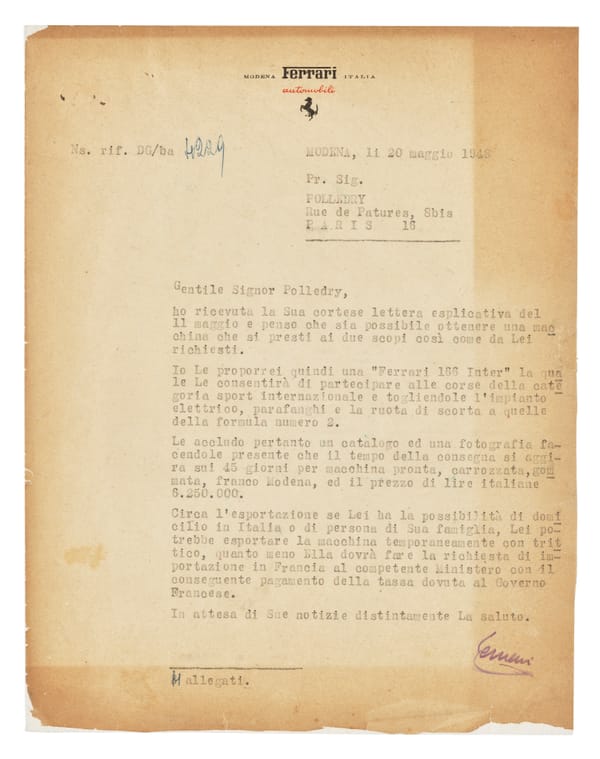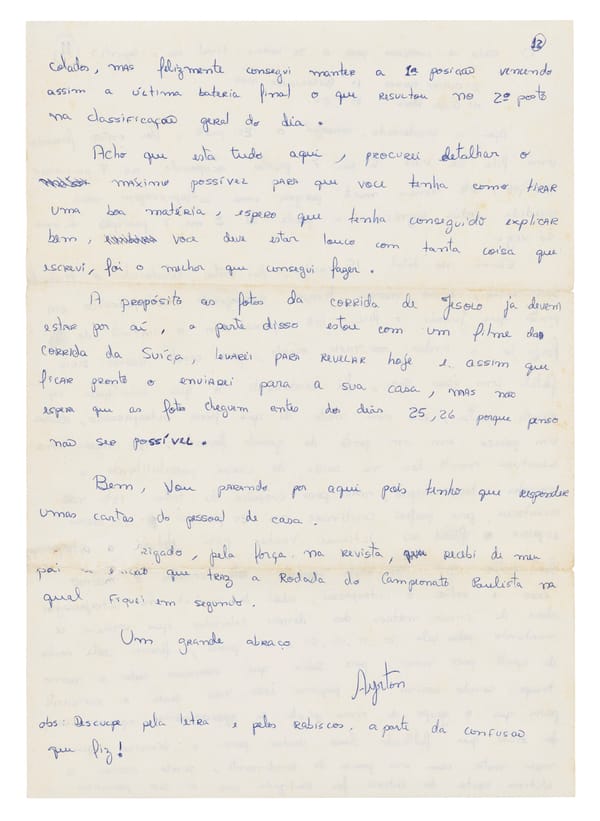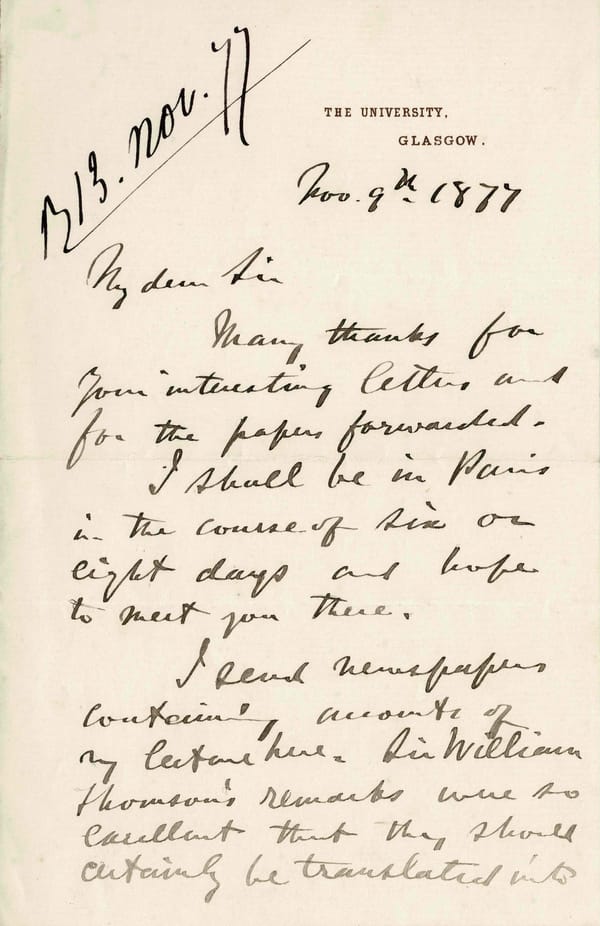Virginia Woolf feels understood by a French critic
A French critic sees into the soul of Mrs. Dalloway, and Virginia Woolf writes back. From Tavistock Square, a rare letter reveals the joy of being truly understood, and the quiet bridge between two literary worlds. A moment of grace between writer and reader.
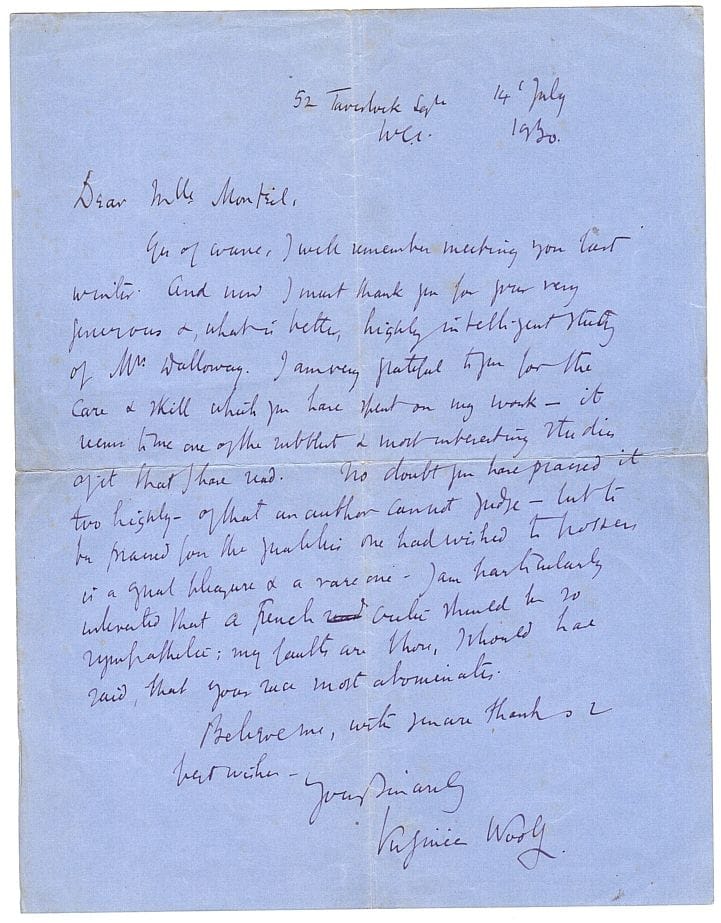
London, July 1930. In her home at Tavistock Square, Virginia Woolf sits down to answer a letter. The recipient is not a friend or fellow writer, but a French literary critic, Mlle Monteil, whose recent essay on Mrs. Dalloway has deeply moved her. With grace and a hint of surprise, Woolf replies:
(...) to be praised for the qualities one had wished to possess is a great pleasure & a rare one.
In these few words, she captures the quiet thrill of being truly understood, a rare event in a writer’s life. At the height of her career, Woolf was boldly redefining fiction: inner time, fractured narrative, stream of consciousness, all unfolding within a single London day. And yet, what strikes us most here is her vulnerability.
I am particularly interested that a French critic should be so sympathetic; my faults are those, I should have said, that your race most abominates...
Her voice reveals both self-awareness and quiet wonder that her experimental style has resonated across cultural lines. This rare letter brings Woolf closer: not the aloof figure of English modernism, but a writer in conversation, grateful for a moment of recognition. It reminds us that even across borders, literature can speak, and be heard.
This letter is presented by Sophie Dupré, an England-based expert and one of the few women in the field of autograph expertise. She began her career in publishing before turning to autograph letters, manuscripts, and signed photographs, working with collectors and institutions worldwide. She used to exhibit regularly at the London Antiquarian Book Fair and has worked on the BBC Antiques Roadshow for nearly 40 years. Her website features a wide-ranging selection of autograph material, with a strong focus on royalty.

